![Michael Novak, Writing from Left to Right: My Journey from Liberal to Conservative, [Image Books Press, Bournemouth 2013, 336 pp.]](/api/image/getissuecoverimage?id=picture_2014_42537.jpg)
We kindly inform you that, as long as the subject affiliation of our 300.000+ articles is in progress, you might get unsufficient or no results on your third level or second level search. In this case, please broaden your search criteria.
![Michael Novak, Writing from Left to Right: My Journey from Liberal to Conservative, [Image Books Press, Bournemouth 2013, 336 pp.]](/api/image/getissuecoverimage?id=picture_2014_42537.jpg)
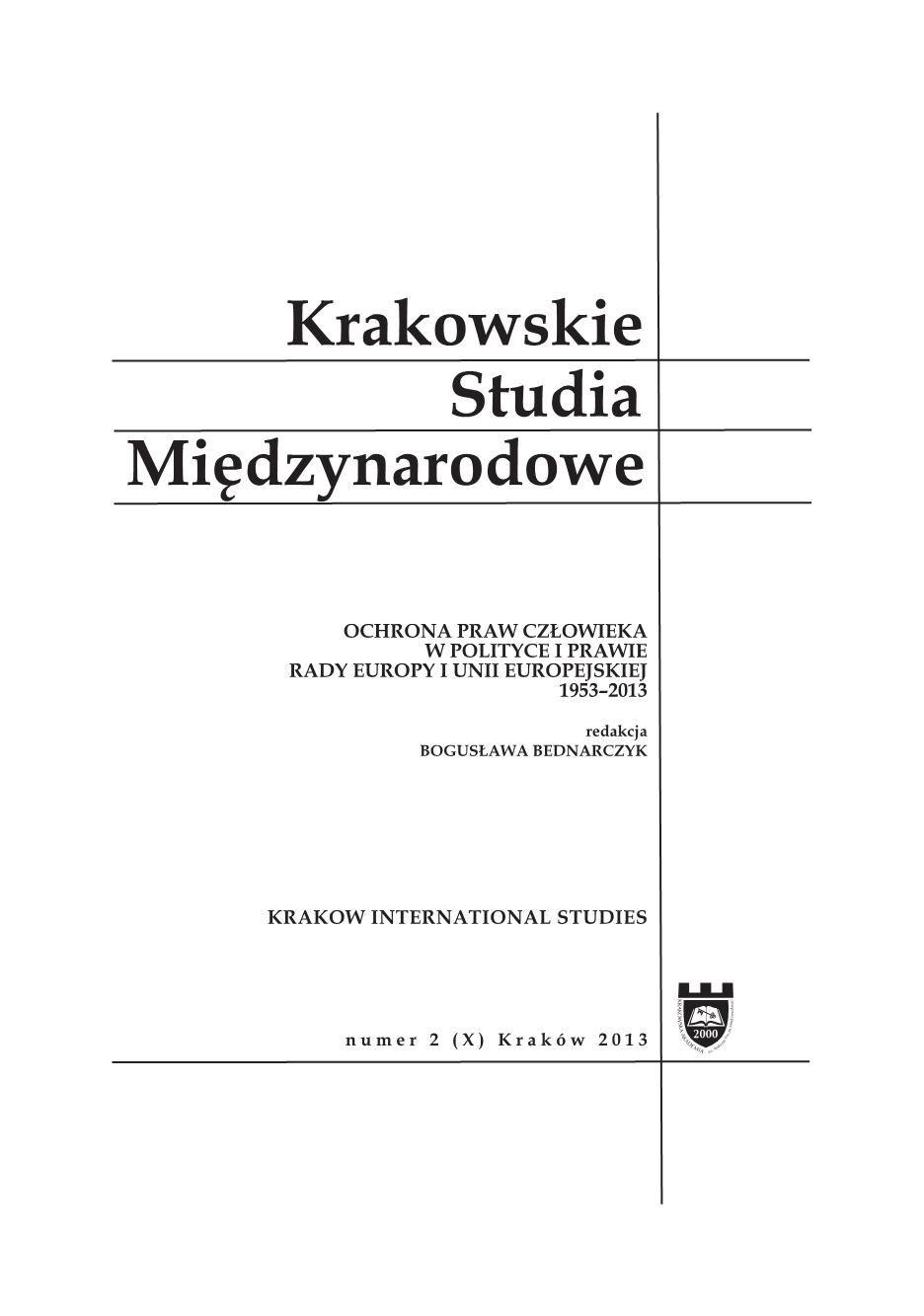
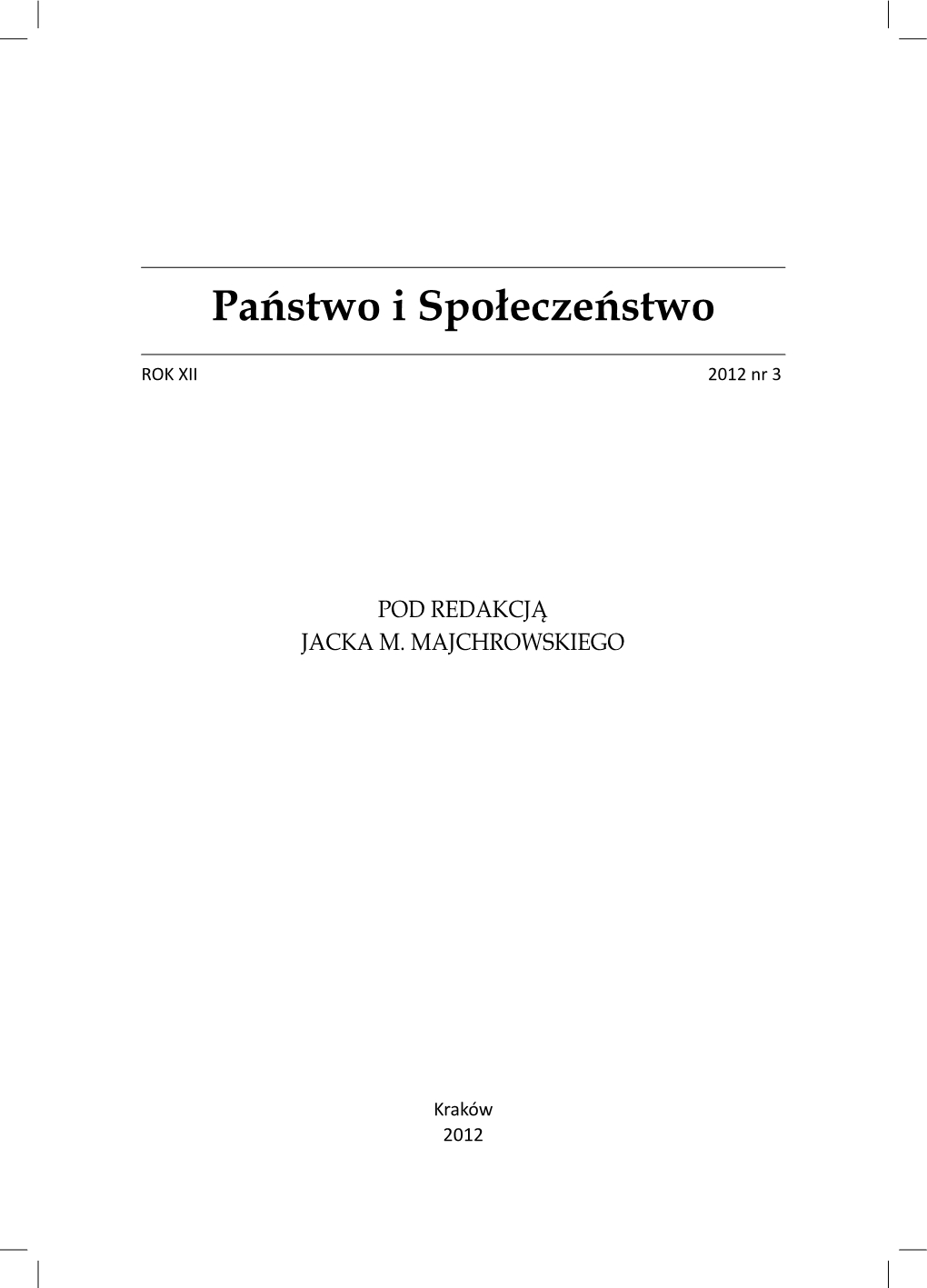
Stanisław Szukalski was one of the most famous and controversial artists in Poland. Known well in his motherland almost forgotten after the Second World War he continued his artistic activity in United States of America until nineties when he died. Szukalski was fascinated with Slavism and the deep, ancient past and tradition of Slavonic nations, especially Polish. Reaching there he was finding inspiration to his artistic creations and political doctrine as well. Evoking traditions different then catholic one and joining political thought with art he became unusual artist and even more unusual man of ideas. The article is an attempt to find real sources of inspiration in Szukalski’s doctrine and art including historical, social and cultural aspect of his époque.
More...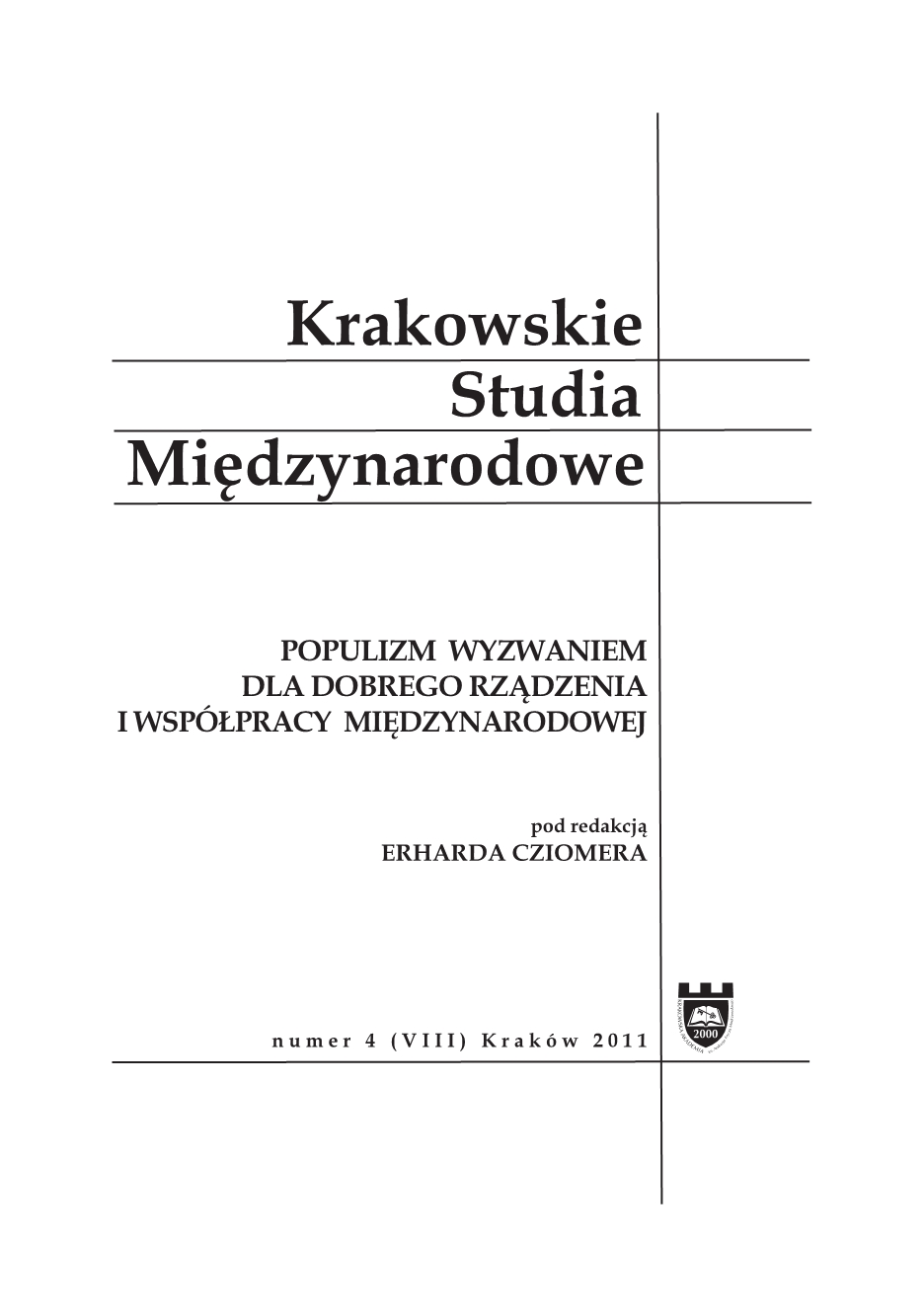

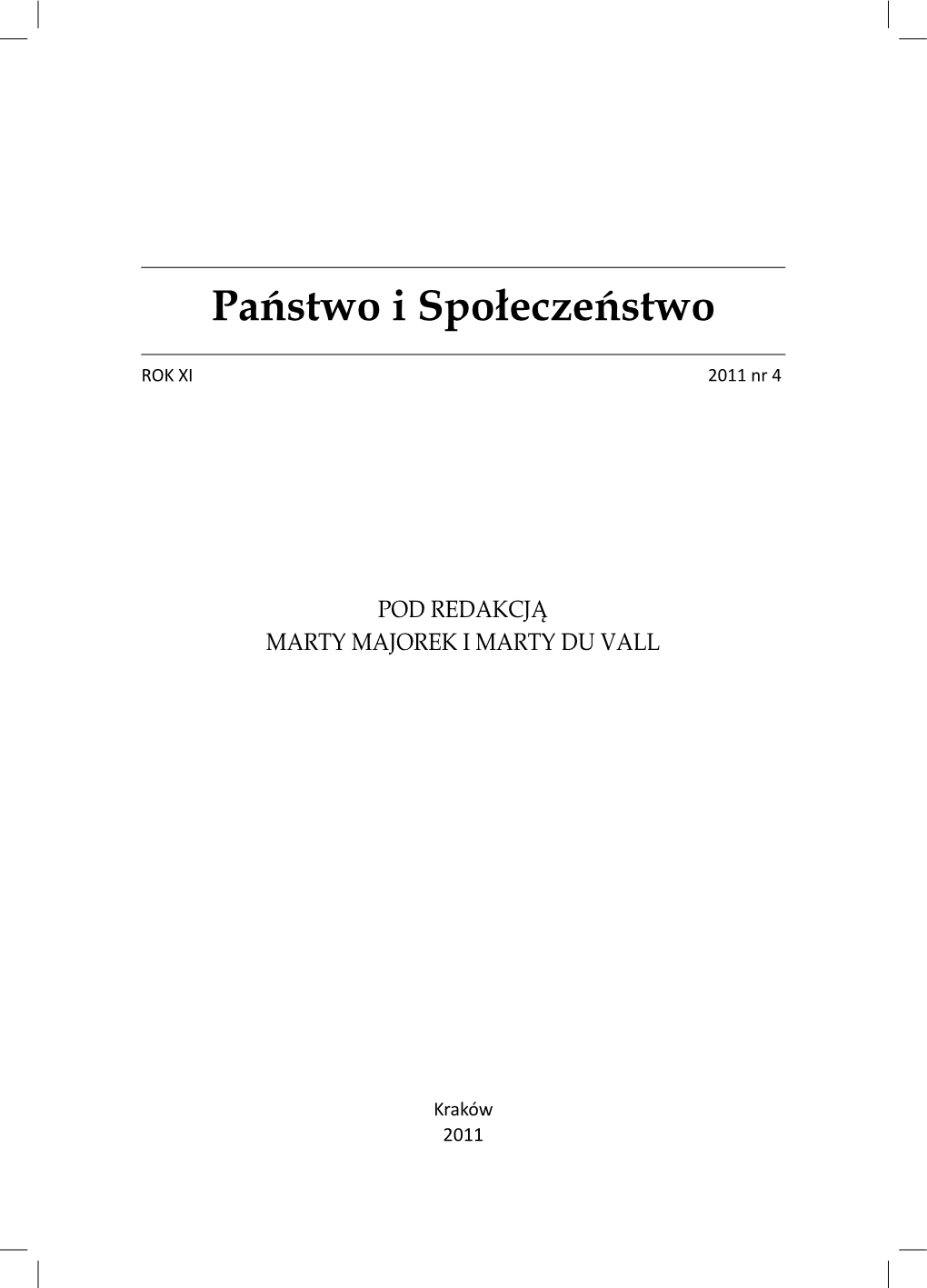
The article presents the political, social, ethnical and economic situation in Bosnia-Herzegovina 15 years after the signing of the General Framework Agreement for Peace in Bosnia-Herzegovina. The agreement officially finished the war in this country. The goal of this article is to describe the complexity of the internal situation and the problems of the construction of a stable and independent state. The article discusses an extremely complicated political system, that was imposed in the peace agreement, which alongside with different political businesses of three constitutional nations is leading to the decision-making paralysis and makes stable ruling is making impossible. The role of the High Representative UN/EU was also described. The role is to coordinate the activity of international community and is indeed exercising the sovereign power in the state contributing to therecognition that Bosnia, although is an independent and sovereign state, actually became an international protectorate. Various opinions about the effectiveness of the High Representative and the legitimacy of taken actions were presented. The fact that (between 1992–2004) NATO forces (executing military missions) and (from 2004) European forces (executing civil-military missions) stationed in Bosnia-Herzegovina is not without meaning. The author is also paying attention to the fact that a complicated and strained ethnic situation is a source of stagnation in BiH and individual constitutional nations have completely different expectations and political businesses which is making impossible to form a civil nation (national) and is still jeopardizing the state’s territorial integrity.
More...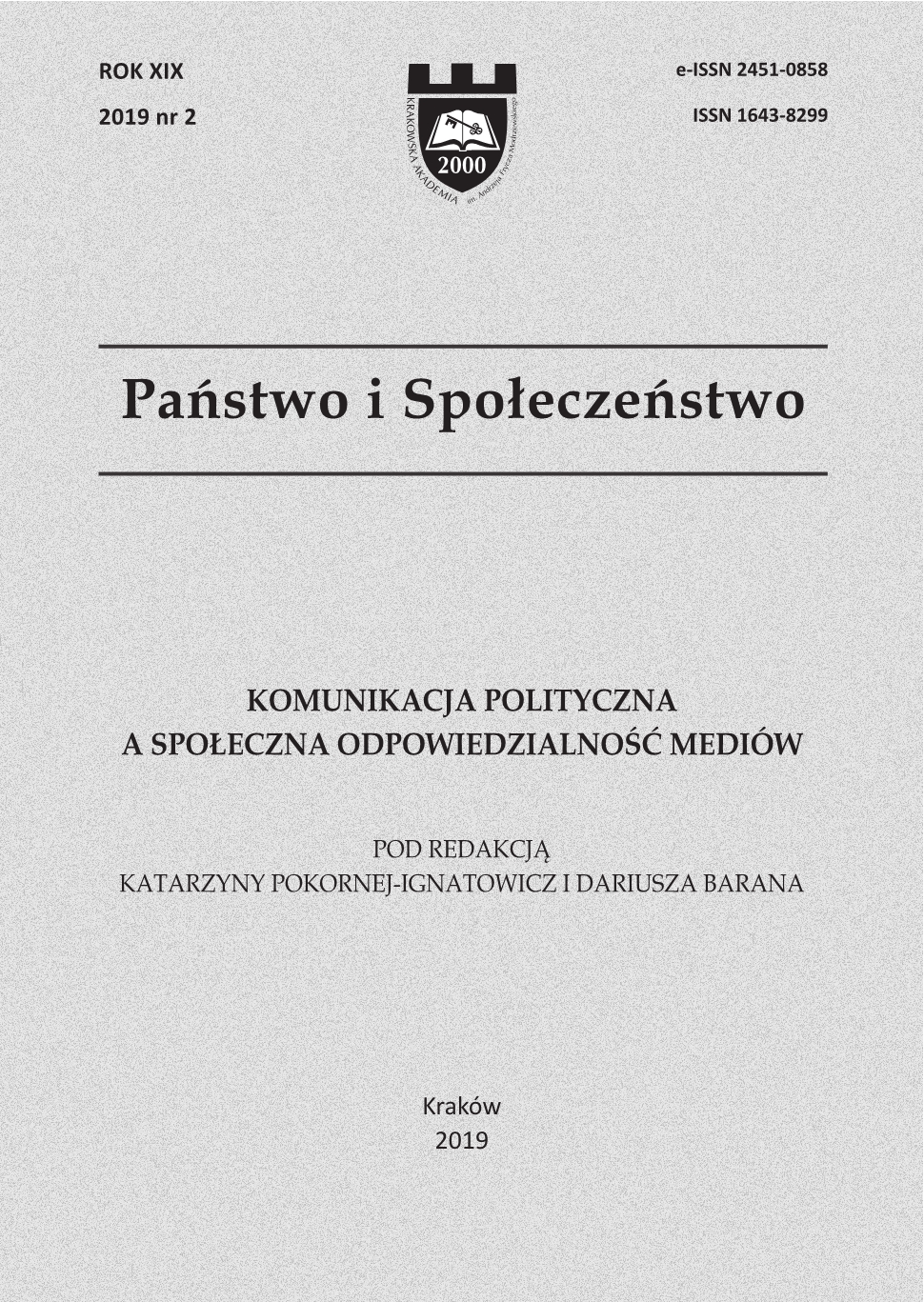
This paper examines public images of Ewa Kopacz, Beata Szydło and Donald Tusk in terms of quantitative and qualitative study of texts published in the Czech portal iDnes.cz. On the example of publications about Polish Prime Ministers, it was analyzed what kind of Polish politicians image was created by chosen Czech medium, what are their media images. The image of politician is understood as his/her perception and what it is influenced by – information, views, assessments or imaginations on his/her subject. Taking into account the general context, the text refers also to the conditions of functioning of the Czech media. This also applies to the images of E. Kopacz, B. Szydło, and D. Tusk in the iDnes portal compared to other leaders of the Visegrad Group countries and Germany.
More...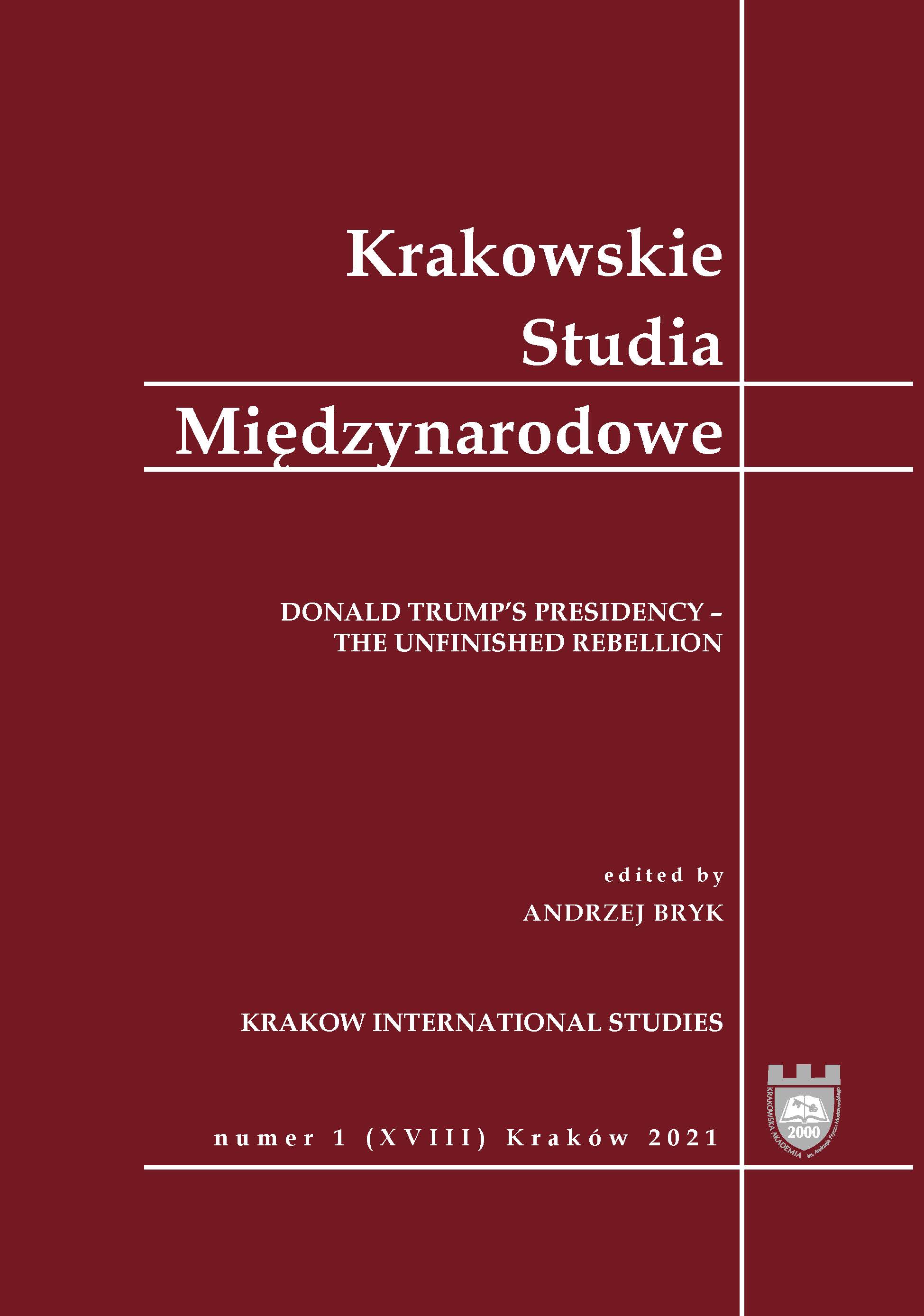
President Donald Trump’s appointments to the US federal judiciary were a major accomplishment of his presidency (in particular, his three Supreme Court appointments). They are likely to have a significant impact on American political and legal life for a long time to come. The appointments have been criticized by some, on ideological grounds, but they represent a significant and beneficial return to the original understanding in American constitutionalism of the proper role of judges and judicial review.
More...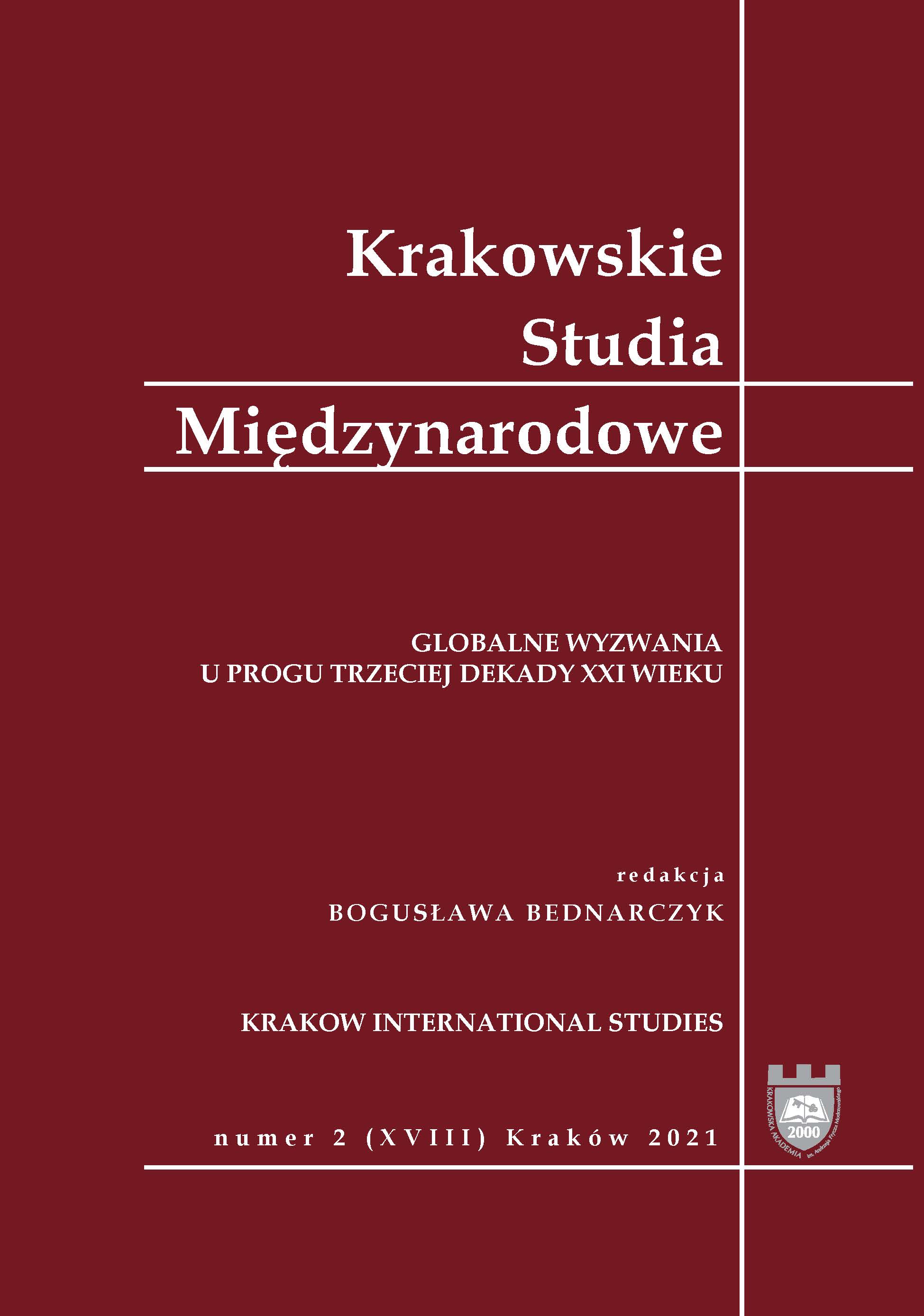
The judiciary reform in Poland started in 2015 with the replacement of judges in the Polish Constitutional Tribunal, the court responsible for the judicial review. It continued with amendments of laws addressed to judges and functioning of the Polish Supreme Court. Controversies over the reform reached the international level and triggered reactions from the European institutions and resulted in judgments of the Court of Justice. The article deals with comparative arguments (examples from the United States, Austria, France or Germany) concerning the extensive judiciary reform that have been presented by its authors throughout the debates and as response to criticism.
More...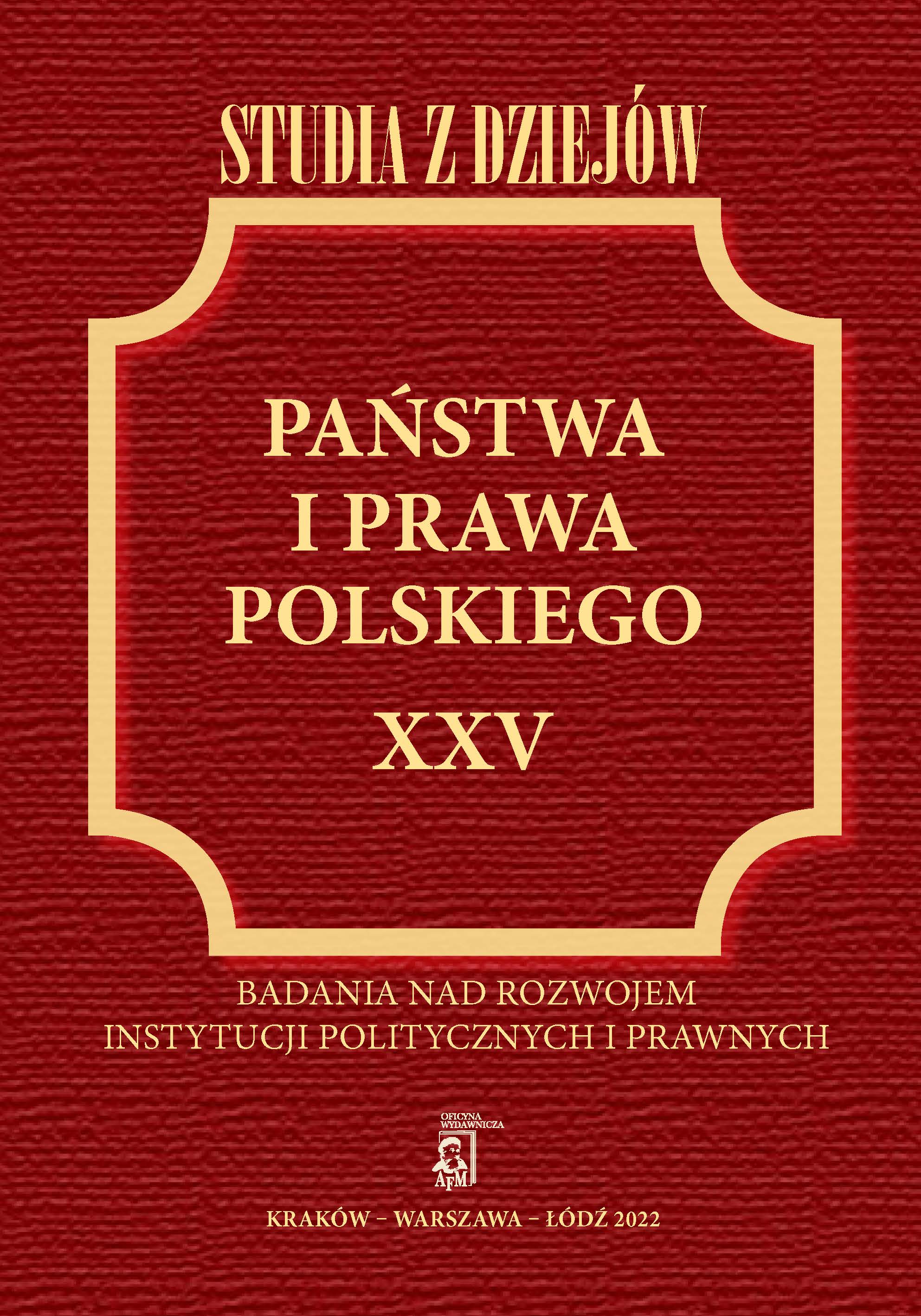
The article concerns the organisation and activities of the army food administration, which for most of the time during the November Uprising was carried out by the Army General Commissariat Service. During the 10 months of the uprising, the food administration underwent several organisational changes, and its execution was entrusted to various bodies. The discussion undertaken is related to issues concerning the organisation of this administration, with particular emphasis on the characteristics of the activity of its field administrative apparatus, which was entrusted to War Commissioners at individual army divisions and to Regional Commissioners as civilian requisitioning bodies in individual administrative regions which were links of the army’s food administration. On the other hand, in order to make the food requisitions enacted by the Sejm in June 1831 effective and rapid, Extraordinary Commissioners were established and entrusted with their supervision. In addition to the description of the powers conferred on all these officers, the author analyses the legal procedure applied by them to the requisitioning of food and fodder for the army against the background of events at the time.
More...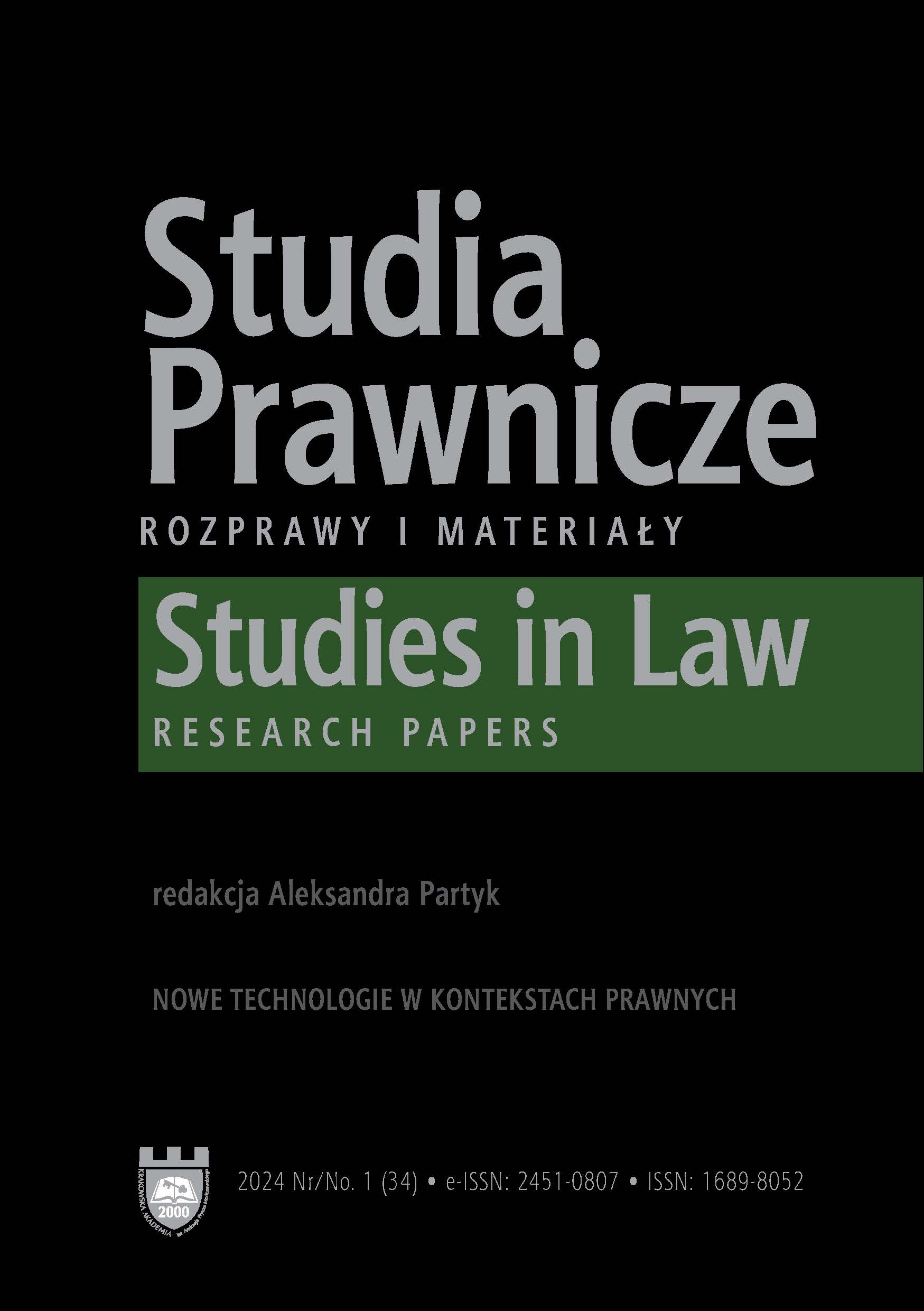
In the paper the phenomenon of political deepfake was discussed, constituting the type of political deepfake deriving from original deepfake classification regarding to the aim. It was concluded, that currently functioning measures may be insufficient. The proposition of new potential type of illicit act was formulated, differentiating socially harmful deepfake from artistic deepfake.
More...
The following paper attempts to discuss the specific features of the Constitutional Courts in Central Asian countries: Kazakhstan, Kyrgyzstan, Tajikistan, and Uzbekistan. The aim of the paper is to discuss their compliance or non-compliance with the Kelsenian model, widespread in European countries. The study asserts that the model of the Constitutional Courts in the abovementioned nations does not differ significantly from the Western European model. This is an important conclusion since the Central Asian countries are permanently classified as non-democratic. Thus, this raises a question about the sense of the existence of the Constitutional Courts in countries that do not respect the principle of the democratic rule of law. The answer to this question goes beyond the scope of the following study, but the indisputableThe following paper attempts to discuss the specific features of the Constitutional Courts in Central Asian countries: Kazakhstan, Kyrgyzstan, Tajikistan, and Uzbekistan. The aim of the paper is to discuss their compliance or non-compliance with the Kelsenian model, widespread in European countries. The study asserts that the model of the Constitutional Courts in the abovementioned nations does not differ significantly from the Western European model. This is an important conclusion since the Central Asian countries are permanently classified as non-democratic. Thus, this raises a question about the sense of the existence of the Constitutional Courts in countries that do not respect the principle of the democratic rule of law. The answer to this question goes beyond the scope of the following study, but the indisputable conclusion of this article is that authoritarian states pay much attention to the normative aspect of the functioning of regimes and ensure the existence of façade institutions typical of democratic states.
More...
The starting point for the discussion in this article is the principle of parliamentary representation, a cornerstone for any democratic society. This principle holds a key constitutional status within Polish law. To uphold and actualize this principle, the structure of the parliamentary mandate and the mechanisms designed to protect it are of utmost importance. Immunity protection offers members of parliament the freedom to execute their duties without interference. A limited set of criteria for the revocation of a parliamentary mandate ensures the integrity of the mandate to represent voters, acquired through the electoral process. This approach also safeguards against the arbitrary removal of a representative’s formal legitimacy to act on behalf of the nation. The central thesis of this article is that any unlawful termination of a parliamentary mandate through a flawed process constitutes a direct assault on the very foundation of democracy: the nation’s right to freely elect its representatives.
More...
The contemporary landscape of global security is profoundly influenced by the phenomenon of terrorism, constituting a paramount concern of unparalleled magnitude. While terrorism has historically permeated the annals of state formations, its contemporary manifestation has witnessed a marked escalation and proliferation in recent decades. Contrary to popular belief which may confine the specter of terrorism to the confines of the Old Continent or to nations characterized by democratic governance paradigms, its reach extends far beyond such boundaries, impacting diverse geographical locales and transcending conventional societal demarcations. Indeed, terrorism in the present era exacts a heavy toll, manifesting in myriad forms and encroaching upon all facets of communal existence. In its deleterious wake, terrorism undermines the foundational tenets safeguarded by global legal frameworks, thereby imperiling the bedrock principles that underpin civilizational norms. This scholarly exposition endeavors to scrutinize the multifaceted dimensions intrinsic to the phenomenon of terrorism, elucidating the intricate interplay of factors that precipitate recourse to violent means in the pursuit of political objectives.
More...
This paper investigates the phenomenon of political violence in the context of Bosnia and Herzegovina. Through an interdisciplinary approach, various causes, forms and consequences of political violence in the state are investigated. Emphasis is placed on ethnically motivated incidents, political corruption, election manipulations and institutional crises, and their role in destabilizing the political system and society. Through the analysis of examples of political violence in the past and present, the factors that contribute to the escalation of violence, as well as strategies for prevention and dealing with it, are investigated.. The focus of the research is the identification of key factors that influence political violence, including ethnic tensions, lack of rule of law, economic inequality, and lack of reconciliation from the past. The goal of the research is to understand the complexity of political violence in Bosnia and Herzegovina, in order to develop effective policies and strategies for building peace, stability and inter-ethnic reconciliation in the country, that is, to avoid future political violence and ensure sustainable political stability in the country.
More...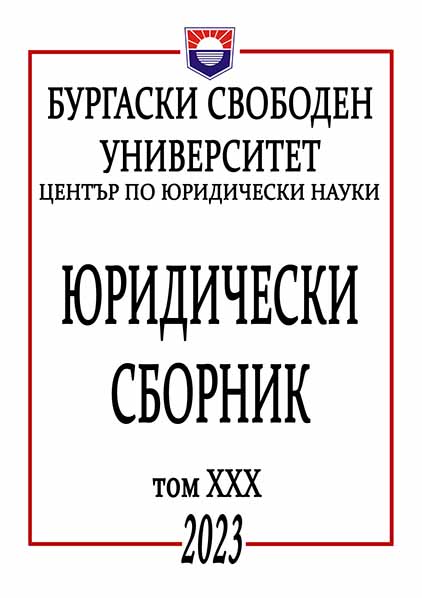
A referendum, which is a form of expressing the will of citizens, plays an important role in democratic state systems. It is a tool that complements the model of representative power that is dominant in many countries, allowing citizens to directly participate in the decision-making process. In this context, the referendum, as a tool that complements the representative form of government, has found its place in the constitutions of many post-communist countries in Europe, including Bulgaria. The article presents an analysis of the national referendums of this Balkan country, taking into account both the historical context and current legal provisions regulating this form of civic participation. The analysis is based on a review of legal provisions and a study of historical examples of referendums in Bulgaria, including those related to political transformations after the communist period. In the context of the current challenges of democracy and public participation, the analysis of national referendums in Bulgaria aims to provide a deeper understanding of the role of this form of direct democracy in the Bulgarian political system and the possible implications for the future of citizen participation in the decision-making process.
More...
The EU Security Union Strategy (2020 – 2025) analyses the threats for the security of the European union at the moment of its elaboration and adoption: the problems of the cybersecurity, the hybrid attacks, the terrorism and radicalization, the organized crime and other. The Strategy does not foreseeing a war on the territory of Europe, the followed wave of displaced persons from Ukraine, as well the other resulting of this event threats for the security. The paper is focused on these news threats and challenges.
More...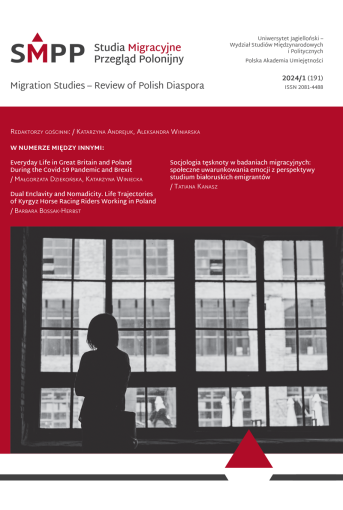
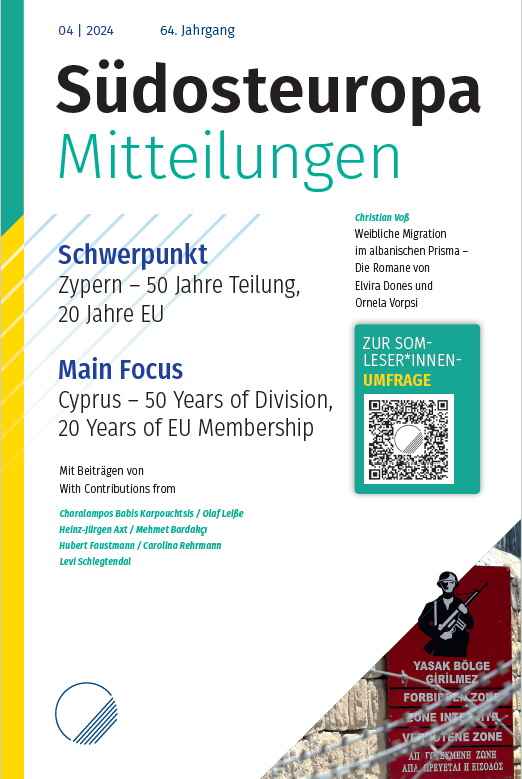
This article argues that the efforts to resolve the Cyprus dispute on a federal model slowed down after the Annan Plan was accepted by the Turkish Cypriots but rejected by the Greek Cypriots in the simultaneous referenda on 24 April 2004. In its aftermath, Türkiye leaned towards supporting the independence of the Turkish Republic of Northern Cyprus (TRNC).Further, the collapse of re-unification talks on a federal basis in Crans-Montana in 2017became a milestone for Türkiye to advocate for the international recognition of the TRNC more vocally. This article will shed light on the developments and causes leading up to the paradigmatic change in Türkiye’s policy, aiming for the independence of the TRNC.
More...
When Cyprus joined the European Union in 2004, hardly anyone could have imagined that nine years later the island would be forced to ask its euro partners and the International Monetary Fund for financial assistance due to an impending financial collapse. The invasion of Cyprus by Turkish troops in 1974 led to the division of the island, which continues to this day. However, because many Cypriots from the Turkish-occupied north moved to the south, there was a positive economic development as the potential labour force was increased. When Cyprus applied for membership of the European Union, economic development had progressed to such an extent that the island was able to fulfil the accession criteria without any major problems. However, Cyprus ignored the warnings, which brought with it the risk of financial collapse. Cyprus was only stabilised with the help of financial assistance from its euro partners and the International Monetary Fund.
More...